Bachelor of
Film and Television (Screen Production)
Entry requirements
Key information
VIEWING DOMESTIC
VIEWING INTERNATIONAL
Entry requirements
Key information
overall
overall
Note: Part-time equivalent study options are not available for international students.
Prepare for a rewarding career in the film industry.
Discover how to make short films, documentaries, music videos, commercials, and experimental works in this practical course. You'll be taught by filmmakers and passionate teachers who are actively involved in the industry, and - uniquely - you'll learn how to shoot on 16mm film for your final major project.
Learn to shoot 16mm film
Flinders University is one of the only places you can learn to shoot on 16mm film. This produces a unique aesthetic - think vintage, retro and period.
Meet filmmakers
Our passionate teachers, research experts and filmmakers have decades of experience in the field, and will connect you to the industry.
Create a portfolio
Graduate with a portfolio of creative work to show future employers and creative collaborators.
Ranked in the top 2%
of the universities in the world
THE World University Rankings 2024 as a percentage of the total number of universities in the world according to the International Association of Universities
Ranked No.1 in SA
in Creative Arts for full-time employment, student support and teaching quality
The Good Universities Guide 2024 (undergraduate), public SA-founded universities only
Five stars in Creative Arts
for full-time employment and student support
The Good Universities Guide 2024 (undergraduate)
Take your skills to the silver screen.
If you have a unique vision, film and television offer the unique opportunity to share your stories with the world. You’ll be studying towards an exciting career that could take you anywhere, like one of these:
Salary
$95K
typical salary in Australia
Job opportunities
583
in Australia, 2025
Film producer
Love to manage a creative project from start to finish? Becoming a producer might be a great career for you to explore. Producers are responsible for planning and ensuring film productions remain on-schedule, and are also involved in hiring, distribution and the commercial success of a particular project.
Their tasks can include working with creative professionals to ensure a shared creative direction is agreed upon, sourcing and approving studio hires and locations, pitching story ideas to secure financing, and more.
Cinematographer
Cinematography is the art of capturing a visual story. Cinematographers - sometimes known as directors of photography, or 'DP' - are responsible for ensuring that the series of shots taken as part of a film production form a logical narrative to tell a specific story.
Not only does a cinematographer shoot a film and work with the camera and light crews on set, but they are often responsible throughout the production lifecycle, from an initial creative idea, to storyboarding, and into post production.
Salary
$82K
typical salary in Australia
Sources: Seek Australia, 2025 | Indeed Australia, 2025
Film and television crew
When you watch the credits of a film or television program, you might notice the many crew positions which are listed. There are countless opportunities when a production is in full swing - whether it's helping out with the cameras, working as a gaffer or film loader, or even as an intimacy coordinator.
Advertising coordinator
Advertising coordinators are responsible for managing all things related to advertising: whether it's doing market research to ensure marketing campaigns are data-driven, or even designing or creating advertising content themselves. It's a varied, fast-paced role that could take you far within the film and television sectors, or even beyond.
Film programmer
If you love watching films, this could be the role for you. Film programmers select the films to be shown in festivals, cinemas or on television: they need to ensure that the works are of a certain quality and would be of interest to the relevant target audience.
What will you study to start your career in the screen industry?
Study a variety of core topics and electives and get hands-on with screen and media production.
- Year 1
- Year 2
- Year 3
GENERAL
In your first year, you'll study core topics and your choice of one option or minor topic.
Year 1 - Core topics
Your first year might include the following topics. For exact topic information, visit the course Handbook.
GENERAL
In your second year, you'll study core topics and your choice of one option or minor topic.
Year 2 - Core topics
Your second year might include the following topics. For exact topic information, visit the course Handbook.
GENERAL
In your third year, you'll study core topics and your choice of two option or minor topics. You'll also have the opportunity to create a 16mm student-led short film.
Year 3 - Core topics
Your third year might include the following topics. For exact topic information, visit the course Handbook.
Customise your degree.
After your first year, you can focus on an area that interests you by choosing minors. This will help you work toward the career of your dreams.
MINOR
Visual Effects
The Visual Effects minor offers targeted development in concept art, animation, and digital design. Students gain industry-relevant experience and produce portfolios that meet international standards, positioning them for future opportunities in VFX, gaming, and media production. Through practice-led projects, students collaborate in studio environments equipped with advanced hardware, software, and professional-grade resources.
Year 1 - Core topics
Visual Effects and Post Production
*Topics may be subject to change.
Year 2 - Core topics
CGI Foundations
Motion Capture and Virtual Production
*Topics may be subject to change.
Year 3 - Core topics
Digital Entertainment Production 1
*Topics may be subject to change.
MINOR
Sound Production
In film and television, sound is incredibly important. Can you imagine a war movie without realistic sounds of gunfire, or a musical without emotive songs? With a minor in Sound Production, you will gain fundamental skills and music and sound production techniques. You will also have the opportunity to work on an immersive sound design project, and turn your mind to the business side of music and sound with a topic relating to enterprise and impact.
Year 1 - Core topics
Sound and Music Production Techniques 1
*Topics may be subject to change.
Year 2 - Core topics
Sound and Music Production Techniques 2
*Topics may be subject to change.
Year 3 - Core topics
Ambisonics: Spatial and Immersive Sound Design Project
Music Industry Public Project: Enterprise and Impact
*Topics may be subject to change.
MINOR
Performance
The Performance minor is a hands-on introduction to acting, writing for theatre, and leading collaborative arts projects. You'll build skills in script analysis, character research, adaptations, collaboration and community engagement. Through practical workshops and original performance-making, this minor prepares you to create your own work and understand how text, performance and audience all come together in the world of theatre.
Year 2 - Core topics
The Actor and the Text - Adaptation and Audiences
*Topics may be subject to change.
Year 3 - Core topics
Community-Engaged Arts Practice
*Topics may be subject to change.
Option topic
Your choice of any topic (4.5 units) university-wide, given entry requirements are met or a Bachelor of Film and Television (Screen Industries) minor
Boost your knowledge with an Honours in Creative Arts.
By pursuing further study in film and television, you’ll truly put theory into practice by developing a major creative work. Plus, you’ll develop strong research skills by developing a research question related to your creative product.
Ranked #1 in SA
in Creative Arts for full-time employment, student support and teaching quality.
The Good Universities Guide 2024 (undergraduate), public SA-founded universities only
Five Stars
in Creative Arts for full-time employment and student support.
The Good Universities Guide 2024 (undergraduate)
Ranked in the top 2%
of the universities in the world
The World University Rankings 2023 as a percentage of the total number of universities in the world according to the International Association of Universities
Discover South Australia.
Where world-class education meets laid-back coastal living. With pristine beaches, acclaimed wineries, and vibrant festivals at your doorstep, South Australia offers an unmatched student experience.
Photo credit: SATC
Get inspired.
Discover more about Flinders University’s Bachelor of Film and Television (Screen Production).
Making 16mm films
Explore the making of a 16mm film with Associate Professors Tom Young and Helen Carter.
What are the portfolio requirements for this course?
Find out how to put together your portfolio to enter the Bachelor of Film and Television (Screen Production).
“I'm so glad I chose Flinders. I've had really great lecturers who have real experience in the industry, and a commitment to adapting and updating based on current trends and technology."

Lucy Gale
Bachelor of Creative Arts (Screen)
Now Bachelor of Film and Television (Screen Production)

Lucy Gale
Bachelor of Creative Arts (Screen)
Now Bachelor of Film and Television (Screen Production)
Need support?
International Student Services (ISS) is the first point of contact for international student support. The university also offers everything from cultural, health, and wellbeing services, to academic support.
Campus tours
Take a virtual tour of our campuses, guided by your fellow international students.
FUSA
Flinders University Student Association (FUSA) is the heart of the Flinders Experience. FUSA is where you'll find out about events, club memberships, and extracurricular activities.
Accommodation.
Adelaide has many accommodation options for international students. You can choose to live on campus, at our city accommodation provider The Switch, or in rental accommodation.
Flinders offers a vibrant, fun, supportive uni experience you’ll remember for a lifetime.
Need support?
From cultural, health and wellbeing services, to study and financial support, enrolment advice and more, we’re here to help.
Student clubs
Flinders University Student Association (FUSA) is the heart of the Flinders Experience. FUSA is where you’ll find out about events, club memberships and extracurricular activities.
Campus facilities
Flinders’ campuses are hubs of activity, with retail and food outlets, library spaces, study and chill spaces and more.
Learn from the experts.
Our incredible teaching staff are experts in their fields and well-connected to industry.

Associate Professor Tom Young
Tom's extensive experience in documentary, television commercial and client video production has given him a highly practical approach to his teaching.
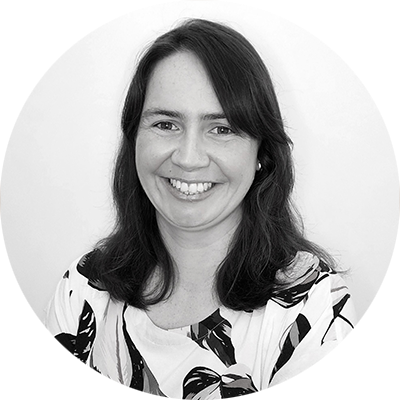
Associate Professor Claire Henry
Claire is an award-winning university educator and HEA Fellow, specialising in contemporary cinema, the representation and regulation of sex and violence on screen, and genre and auteur studies.

Dr Nicholas Godfrey
Nick's research and teaching interests are comprehensive, including Hollywood cinema, film aesthetics, the history of film distribution, Australian national cinema and Asian cinema.

Associate Professor Julia Erhart
Julia is an internationally recognised feminist film scholar and expert in the fields of feminist, LGBTQ, and documentary media.

Dr Matt Hawkins
As well as being a lecturer in screen and media at Flinders University, Matt is the artistic director of the South Australian Playwrights Theatre writing, producing and directing plays, podcasts and audio series and a producer at Frankie Films creating video content for the government and private sectors.
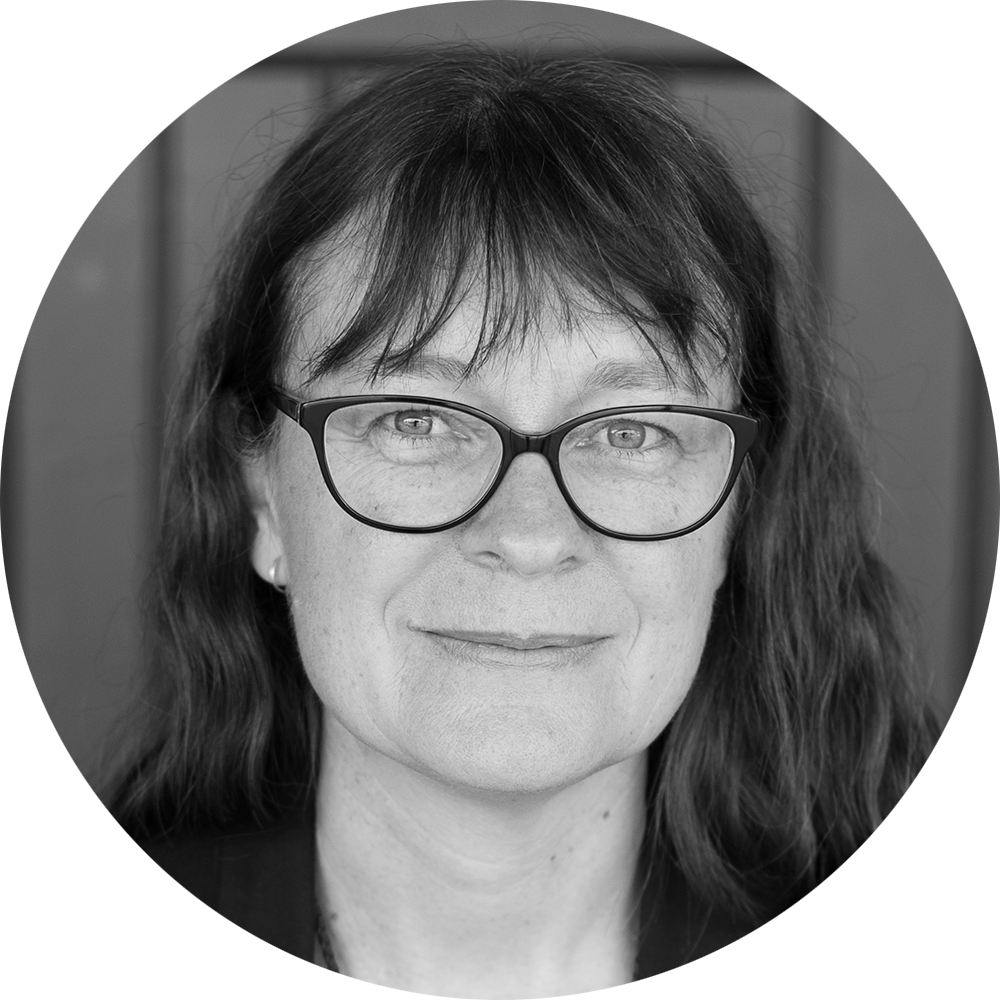
Dr Helen Carter
Helen is an award-winning, masters-educated, cinematographer with 20 years' experience in the film and television industry.

Dr Claire Whitley
Claire Whitley is an Associate Lecturer in Creative Arts. She holds a PhD in Screen and Media, where her interests include Hollywood film comedy, media aligned with popular feminism, "unruly" femininity, and industrial responses to socio-cultural trends.

Cameron Nelson
Cameron is a lecturer in Screen. He is a writer/director whose award-winning first feature, Some Beasts, was chosen to participate at the IFP Narrative Labs, the U.S. in Progress-Wroclaw, and received an Austin Film Society post-production grant.
Connect with industry.
You will benefit from our strong connections to industry that will provide you with practical, real-world industry experience through placements.
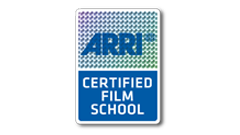
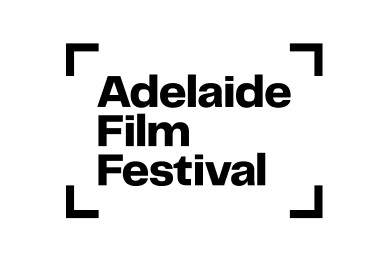

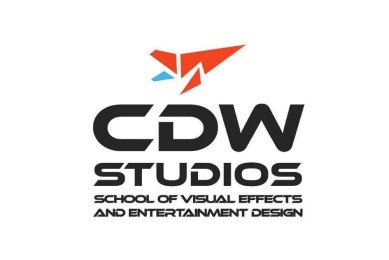

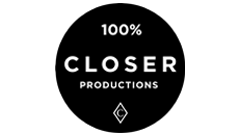




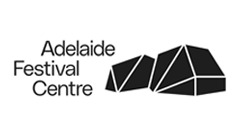
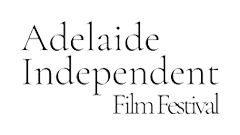
You might also be interested in other courses.
How to apply.
We know not everyone begins uni the same way, so we offer a variety of pathways into Flinders.
Use the dropdown to tell us a bit about you.
Alternative pathways
UniTEST
If you’re in Year 12, taking the free uniTEST can help boost your chances of getting into Flinders.
Research Project B Pathway
Strong results in your Research Project B subject along with your Year 12 results can be considered for entry.
Year 12 Grades Entry
By using three of your best Year 12 grades, you can also gain a place in your course of choice.
School Recommendation Program
Your school’s recommendation about your academic performance may be considered as part of your admission.
If you started uni but didn't finish, you may be able to gain entry into Flinders with a higher education transfer.
Higher education transfer
If you’re studying at another university, you may be able to transfer to Flinders based on your Yr 12 results, current GPA or other factors.
If you've had TAFE or VET training, you may be able to continue your study with Flinders.
TAFElink
Even if you didn’t finish high school (Year 12), you may be able to study at Flinders through your TAFE/VET qualification.
Dual offer pathways
You may be able to complete a TAFE SA course and have guaranteed entry into Flinders.
Credit transfer
The TAFE/VET stud you’ve already done may be able to be used as credit towards a Flinders’ course.
No ATAR? No worries. If you've got work or life experience, there are pathways into Flinders.
Flinders Foundation Studies
The Foundation Studies Program is free and guarantees entry to a range of degrees.
Skills for Tertiary Admissions Test (STAT)
The STAT is a 2-hour multiple choice test that assesses your abilities.
Year 12 qualifications
If you completed Year 12 more than two years ago you can still use your results to apply.
Concerned about your ATAR? If it doesn't meet the course requirement, or if you don't receive one, we offer alternative pathways to admission. Contact us to discuss your options—we're here to help.
In addition to submitting an application, you must also submit the following as part of the entry requirements and will be invited to attend an interview:
- a supporting statement on the reasons why you wish to study this course
- a curriculum vitae/resume including details of any publications, performance, work history, training or other relevant experience you wish to be considered
- a portfolio of original work.
Once a complete application has been submitted, applicants will be sent further information by Flinders University (to the email address in their SATAC application) about how to submit the above information.
Interview dates are as follows (with the potential for more dates as required):
- Monday 1 December 2025
- Tuesday 2 December 2025
- Wednesday 3 December 2025
- Entry requirements
- Application options
Applicants are required to submit a written statement, CV and a show reel/portfolio, and submit a completed and signed coversheet.
If you don’t meet our English language entry requirements and need to improve your English language proficiency, you can do so through Flinders University Academy – or our approved English Language Instruction Course for Overseas Students (ELICOS) providers.
This means that you can attend the required English language tuition at approved ELICOS providers and gain direct entry into university without an IELTS or TOEFL test.
If you don’t meet our academic entry requirements, you can still gain entry to Flinders University through Flinders University Academy. With a range of diplomas, foundation and English language courses, students can find a direct pathway into the destination degree of their choice.
How to apply
Select your course.
Check entry requirements.
Check your eligibility for credit.
Obtain certified documents.
Submit your application and documents.
Application options.
Apply online
Follow up our step-by-step guide to help you with your application to study at Flinders.
Find an agent
Our registered education agents around the world understand the university system and will guide you through the application process.
Contact us
Get in touch with our team to discuss your preferences, career options, pathways, and course and entry requirements. We are here to ensure you have everything you need to choose the right degree for you.
Don't meet academic requirements? Don't worry. We'll help you get there.
Preparatory courses
If you lack required English proficiency, improve through Flinders University Academy or approved ELICOS providers for direct university entry without IELTS/TOEFL tests.
Flinders University Academy
If you do not meet entry requirements for your desired degree, Flinders University Academy will provide you with a direct pathway into the destination degree of your choice.
Frequently asked questions.
Over the years, many questions have been asked by students before. For the quickest answers view our frequently asked questions or browse the full list @ Ask Flinders.
In our Film and Television (Screen Production) course, you will make short films, documentaries, music videos, commercials, and experimental works. Topics are taught by filmmakers and passionate teachers who are actively involved in the industry. We teach you how to shoot on 16mm film for your final major project.
Our Film and Television (Screen Industries) course is aimed at emerging filmmakers and offers a flexible study program, allowing you to pursue your interests and explore film style and history, major filmmakers and industries, and theoretical concepts. You will also work on student-led productions, learn technical skills and operate filmmaking equipment. We teach you how to make a TV pilot as your final major project.
In Flinders University's Screen Production degree you will get the opportunity to shoot a feature film with one of our two ARRI Alexa 35 cameras. These are the gold standard for digital cinematography and the most used feature film camera in the world. 9 out of 11 Oscar-nominated films in 2024 were shot with one of these. Flinders is one of the only universities with an ARRI accreditation and you can graduate as a ARRI-accredited filmmaker yourself.
Unlike some professions which require an undergraduate (or even postgraduate) degree prior to entry, a degree is not required for aspiring directors. However - and this is really important to remember - studying film gives you an advantage by introducing you to a network of people you might have never met otherwise.
Our teachers are well-connected to the film and television industries, and your fellow students could be your future collaborators. At Flinders, you'll join a welcoming, creative community.
There are plenty of career opportunities to explore! You could become a film director, distribution manager, independent producer, cinematographer, freelance director, video editor, crew on film and tv projects, film programmer, independent creative producer, a marketing coordinator, content creator and more.
- Applications are completed via SATAC
- Visit: satac.edu.au
The table below shows ATAR and Selection Rank data for students offered a place wholly or partly on the basis of ATAR commencing in Semester 1, 2025. It is limited to applicants that have recently completed secondary education (within the last two years). Data may reflect multiple courses available within a suite of courses.
Notes:
<5 – less than 5 ATAR based offers made
N/A – This course uses additional selection criteria and therefore Selection Rank is not published
| ATAR-based offers only across all offer rounds | ATAR - Excluding adjustment factors | Selection Rank - ATAR plus any adjustment factors |
|---|---|---|
| Highest rank to receive an offer | 95.20 | 99.95 |
| Median rank to receive an offer | 76.17 | 80.42 |
| Lowest rank to receive an offer | 57.75 | 61.00 |
The table below gives an indication of the likely peer cohort for new students in this course. It provides data on students who commenced study in this course in Semester 1, 2025 including those admitted through all offer rounds and international students studying in Australia. Applicant background groupings are based on educational background, not basis of admission. Data may reflect multiple courses available within a suite of courses.
Notes:
<5 – the number of students is less than 5
N/P – Not published: the number is hidden to prevent calculation of numbers in cells with less than 5 students
| Applicant background (Semester 1, 2025) | Number of students | Percentage of all students |
|---|---|---|
| Higher education study (includes a bridging or enabling course) | 44 | 37% |
| Vocational education and training (VET) study | 5 | 4% |
| Work and life experience | <5 | <5 |
| Recent secondary education - Admitted solely on the basis of ATAR (regardless of whether this includes the consideration of adjustment factors such as equity or subject bonus points) | 28 | 24% |
| Recent secondary education - Admitted where both ATAR and additional criteria were considered (e.g. portfolio, audition, extra test) | <5 | <5 |
| Recent secondary education - Admitted on the basis of other criteria only and ATAR was not a factor (e.g. special consideration pathways) | 17 | 14% |
| International Students | 18 | 15% |
| All students | 118 | 100% |
Frequently asked questions.
Get in touch with us to discuss your preferences, career options, pathways and course and entry requirements. We are here to ensure you have everything you need to choose the right degree for you.
The type of documents you will need for your international application depends on what course you are applying for and which country you are a citizen of. Course requirements are stated on each course webpage. Examples of documentation you might expect to provide for your international application include a copy of personal identification, academic transcripts or a resume.
Once you have received your Confirmation of Enrolment (CoE) letter from Flinders University, you should apply for your visa as soon as possible as visa processing times can vary. You will receive your CoE letter after you have applied to study at Flinders, accepted your offer and paid the semester tuition fee.
No. Part-time study is currently not available for international students due to visa conditions.
No. Online study is currently not available for international students due to visa conditions.
If you don’t meet our English language or academic entry requirements, you can still gain entry to Flinders University through our on-campus pathway provider Flinders University Academy. Alternatively, you can improve your English language proficiency through our approved English Language Instruction Course for Overseas Students (ELICOS) providers.
You can apply to study as an international student directly through Flinders University or an authorised agent in your country.
If you are from one of the countries listed, you are required to apply via an education agent. If you reside onshore in Australia, you will not require an agent even if you are from the countries listed above.
Yes. As a student visa (subclass 500) holder, you and your dependents (family members) can work up to 48 hours a fortnight when your course of study is in session. If you have started a master degree by research or doctoral degree, this rule does not apply to you and working hours are not restricted.
Our dedicated International Student Services (ISS) team provide a range of programs supporting your enrolment, study and social life, as well as a referral service to facilities on campus and within the local community.
![]()
Sturt Rd, Bedford Park
South Australia 5042
South Australia | Northern Territory
Global | Online
CRICOS Provider: 00114A TEQSA Provider ID: PRV12097 TEQSA category: Australian University








